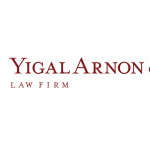Ruth Loven, partner in the litigation practice at Yigal Arnon & Co, on what companies wanting to do business in Israel need to be aware of
The Israeli legal and economic market has undergone a robust expansion during the last decades. One contributing factor to this process is undoubtedly the rise of the Israeli ‘Start-up Nation’. This focus on technology and research and development has resulted in the need for large Israeli law firms with global connections to provide full-service shops with expertise in a multitude of disciplines and jurisdictions. The Israeli legal market is sophisticated today and is servicing cross-border transactions on a daily basis. At least in the high-tech industry, ‘Silicon Valley’ practices have been adapted to the Israeli legal and business environment.
With numerous companies valued at billions already traded on Nasdaq, Israel is second only to China in the amount of foreign firms it has listed. This is clearly a testament not only to the confidence that foreign investors have in the Israeli marketplace, but also to the much improved corporate and tax law regimes.
Litigating in Israel
Litigation is no exception to the robust expansion of the Israeli market in the last decades. As an increasing number of multinational conglomerates have entered the Israeli market and established a business presence, and while Israeli society and the economy have further matured, the practice of litigation in Israel has had to adapt in order to meet international standards as well as to service local demand and expectations. This change is particularly evident in terms of Israel’s modern and sophisticated procedures as well as with respect to causes of action, international litigation and consumer rights.
Despite its relatively small market size, Israel is one of the very few jurisdictions in EMEA which offers a modern US-style class action. The Class Actions Law 2006 allows for the filing of class actions under various circumstances, using an ‘opt-out’ mechanism, namely, any person or entity that falls under that definition becomes a member of the class, unless they provide a withdrawal notice (while the court is allowed, under special circumstances, to apply an ‘opt-in’ mechanism). The filing of a class action is subject to the court’s approval and discretion, and is subject to meeting several conditions: (1) the action must raise material questions of fact or law that are shared by all members of the class; (2) there must be a reasonable possibility that the legal or factual questions will be decided in favour of the class; (3) a class action must be the efficient and fair way of resolving the dispute under the circumstances of the case; and (4) there must be a reasonable basis to assume that the interest of all members of the class will be represented and managed properly and in good faith.
Israeli law further offers modernised consumer rights regulation. The Consumer Protection Law 1981 imposes various obligations towards consumers who purchase products or services for personal, family or domestic use. This raft of obligations include a prohibition on misrepresentation, duties of disclosure, duties concerning product labelling, special regulation on autorenewals, cancellations and refunds, and other types of duties and prohibitions. It contains various post-sale duties, mainly with respect to warranty periods and terms; repair of defects; technical service and more.
The combination of sophisticated consumer rights regime and the availability of class actions has led to a substantial increase in the number of consumer rights and product liability cases as well as to the significant development of case law on consumer rights, duties of disclosure, duty to warn, product labelling, competition issues, data protection and other matters.
The Israeli Supreme Court ruled in 2018 in Re Facebook that a jurisdictional provision in a uniform contract with Israeli consumers referring to a foreign jurisdiction (in the foregoing case – US and particularly to California) is an unconscionable provision and hence unenforceable, while a provision which applies foreign law is not necessarily such. Foreign companies providing products or services to Israeli consumers should therefore assume that a class action may be filed against them by a class of Israeli consumers and would be adjudicated in this jurisdiction (either pursuant to foreign law or otherwise).
Issues to be Aware of
Against the foregoing background, foreign companies providing products or services to Israeli consumers or having business dealings with Israeli entities should be aware of certain legal risks associated with this jurisdiction, inter alia:
-
- Israeli courts may exercise jurisdiction over a foreign entity even if it did not and established a business presence in this jurisdiction.
- Israel does not use juries at all and all questions of fact and law are decided by professional judges and justices.
- The general statute of limitations in Israel is seven years (excluding some limited exceptions) and it applies as the law of the forum regardless of the persons or entities involved.
- Israeli courts may entertain a motion to certify a class action against a foreign entity on behalf of a class of Israeli customers and it may be deemed to be the appropriate forum for such proceedings.
- Israeli courts may apply Israeli law to disputes with a foreign entity, and may exercise the presumption that a certain applicable foreign law is similar to Israeli law.
- Israeli courts may apply Israeli completion laws with respect to actions by foreign entities that took place outside of Israel (such as intentional cartels, to the extent they had a direct impact on competition in this territory).
- Israeli law recognised some type of damages and injuries which are not commonly recognised in other systems including pure financial damages and indirect damages.
In cases where a multinational conglomerate is litigating in Israel, there is a level of expectation to receive the highest quality of legal service and attorney attention that matches other jurisdictions, particularly the US or EU. Both the Israeli legal market in general, and our firm in particular, has adapted to this high standard.
For more information, please contact:
Ruth Loven, partner, litigation practice
Yigal Arnon & Co
1 Azrieli Center
Tel Aviv 6702101
Israel
T: +972 3 608 7901
E: ruthl@arnon.co.il
www.arnon.co.il















